Oil Industry Workers Stage New Round Of Strikes In Iran
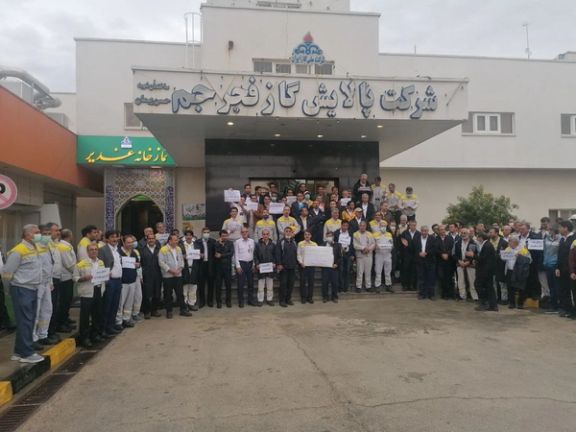
Amid natural gas shortage in Iran due to the government inability to invest in production, a new wave of strikes by oil and gas industry workers has kicked off in the country.

Amid natural gas shortage in Iran due to the government inability to invest in production, a new wave of strikes by oil and gas industry workers has kicked off in the country.
Reports say permanently employed workers in the industry held protest gatherings in Ahvaz, Asaluyeh, Dehloran, Shiraz, Ilam, Bandar Lengeh and Aghajari in the south and southwest of Iran.
In previous months, contract workers also held sporadic protests and strikes along with anti-government demonstrations in the country.
Videos published on social media show employees working at the Ilam Gas Refinery held a protest gathering on Tuesday.
In the meantime, permanent workers at Pars Oil and Gas Company in Asaluyeh stopped working and organized a gathering to show anger at low wages.
Similar events were also staged in Aghajari, Shiraz, Qeshm island, Jam, Dehloran, and Ahvaz.
These strikes are at a time when people are also protesting the incompetency of the government to supply natural gas to households in some regions.
Monday evening, residents in Torbat-e Jam, a town in the northeast gathered outside the governor's office to protest the gas cut off. They chanted slogans like "Death to the governor".
On Monday, people in Torbat-e Jam also rushed to the Red Crescent building to get oil heaters. Videos show some agents prevented people from breaking into the facility.
In order to resolve the gas crisis in Tehran and other cities, the Islamic Republic has shut down schools and offices.
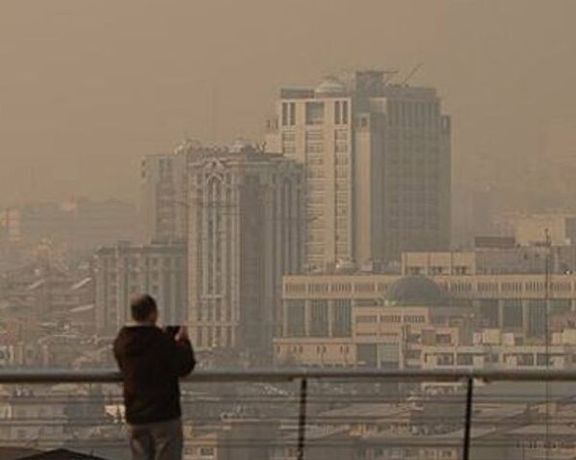
Iran says air pollution in industrial cities will continue until Thursday, and the northeastern city of Mashhad is currently the most polluted city in the country.
Sadeq Ziyaian, Head of National Center for Forecasting and Crisis Management announced Tuesday that "air pollution will continue in industrial and densely populated cities,” after weeks of dangerous levels of pollutants in the air.
The northeastern city of Mashhad, as the most polluted metropolis, with a pollutant index of 154, was placed in an unhealthy category for "everyone". The situation in Esfahan in central Iran is equally dangerous with a pollutant index of 153.
Tehran, Karaj, Ahvaz and Tabriz are at the top of the industrial cities that experience air pollution.
Based on the approval of Tehran Air Pollution Emergency Committee, schools in all cities of the province were shut on Tuesday.
Experts say the reason for the high concentration of air pollutants is burning mazut, a dirty fuel, instead of natural gas in thermal power plants.
Mazut -- commonly called waste oil -- is a heavy, low quality fuel oil, only used when the facilities to blend or break it down into more conventional petrochemicals such as diesel are not available.
Iran has the world’s second largest natural gas deposits but is unable to boost production because it lacks capital and Western technology. It needs to invest $40 billion in modernizing and expanding its gas fields, but most are in the Persian Gulf and need Western technology.
Due to its anti-West foreign policy and an expanding nuclear program, Iran is under US sanctions and cannot borrow money or technology from the West.
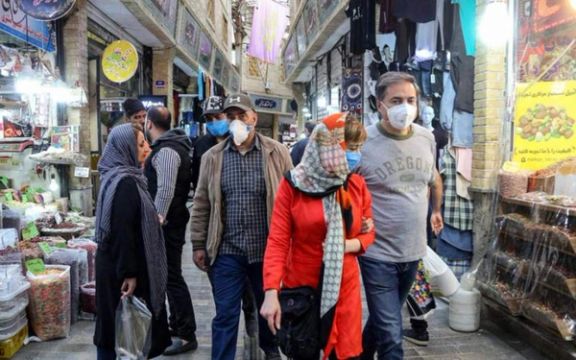
Iran’s new budget will raise taxes by 59 percent in the new Iranian year starting March, a staggering burden on its people amid high inflation and growing poverty.
The total tax revenues planned in the draft budget will surpass $20 billion based on the current rate of exchange. In Iranian currency, however, this is a staggering 8.3 quadrillion rials – that is with 15 zeros.
Local media and experts point out that most of the tax will be collected from ordinary citizens and private businesses, as the gigantic government and semi-public sector enjoys a variety of tax exemptions.
Despite the huge tax bill for the people, the government budget will still have 50-percent deficit, due to a chaotic downturn in the economy mainly triggered by US sanctions on its oil exports and international banking.
The 59-percent jump in planned tax collection means that taxpayers have to pay at least 10 percent more than the estimated 50-percent annual inflation rate.
While the hardliner government wants to collect more taxes, it has increased appropriations for inefficient state-sector companies by 40 percent, and for military and police forces, prisons, as well as propaganda outfits.
In the current Iranian calendar year, the government also increased taxes but has not been able to meet its tax revenue goals. Partial estimates put the amount of actual taxes collected in the early months of the year at about 60 percent of budget projections.
There also other unrealistic revenue projections in the draft bill. The new budget is based on 1.4 million barrels of oil exports per day, while currently Iran exports less than one million barrels a day. With US sanctions in place, it is not clear how Tehran plans to increase exports by almost 50 percent.
The discrepancy between reality and budget estimates gets even more interesting as the government expects to sell each barrel of oil for $85. This would mean more than $43 billion in oil revenues from March 2023 to March 2024.
However, Iran sells its oil clandestinely mostly to China with hefty discounts, estimated at less than $40 per barrel. Current average crude prices are around $80 and with a mild recession expected in 2023, prices would likely not increase substantially.
Agreement with the United States over its nuclear program can lift the sanctions and only in that case Iran can sell around 1.5 million barrels a day, but a deal seems much more unlikely now than a year ago when talks were still taking place in Vienna to revive an earlier nuclear accord known as the JCPOA.
Formal negotiations ended in March 2022 after the Russian invasion of Ukraine and the last attempts by the European Union to broker a deal fell apart in September.
Iranian commentators and experts regard the current budget as unrealistic and the high taxes as cruel for a population whose purchasing power has declined dramatically since 2018 when Washington abandoned the JCPOA and imposed sanctions.
The Iranian currency rial has lost its value by more than tenfold in five years, making imports of food and other essential necessities equally expensive for consumers.
Amir Hossein Mahmoudi, an investment expert in Tehran told Aftab News website on Monday that “The new budget is at least 40-percent higher than the current one and the deficit stands at around 50 percent.” He added that this sort of a budget “will not send positive pulses to the capital market and
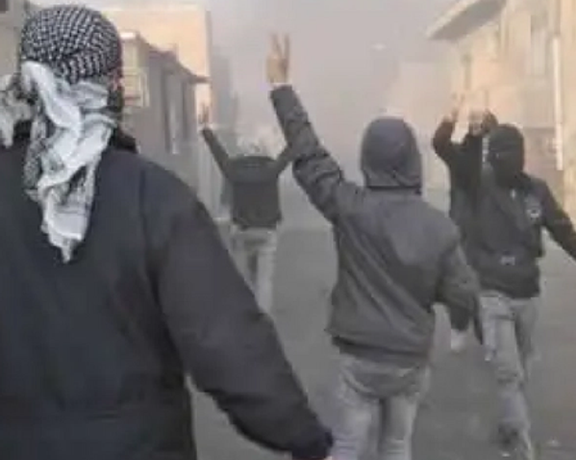
A Kurdish rights group says during the first 15 days of 2023, at least 96 Kurdish citizens have been arrested by Islamic Republic government forces.
Hengaw Human Rights Organization announced in a tweet Monday that 13 children, five university students, four teachers, and five women are among the detainees.
Iranian security forces used excessive and lethal force against protesters in Kurdish regions since the beginning of nationwide protests following the death of 22-year-old Kurdish woman Mahsa Amini in police custody in mid-September.
There are no exact figures on the number of people arrested during the protests across the country, but some sources say nearly 20,000 people have been detained.
Security forces have killed around 500 civilians during the protests, many from Kurdish and Sunni regions in the southeast.
The Islamic Republic’s attacks on Kurds are not limited to the crackdown on protesters as the IRGC has also stepped-up shelling of Iranian Kurdish parties in the Iraqi Kurdistan region.
Back in November, the IRGC launched missile attacks against the positions of the dissident Iranian Kurdish group, the Democratic Party of Iranian Kurdistan in Erbil. At least three missiles hit the party's positions including a hospital, causing casualties.
The Islamic Republic calls the Kurdish armed groups in the western provinces of Iran, "terrorist groups" or "anti-revolutionary" but these groups say that the goal of their armed campaign is "defending the rights of the Kurds".
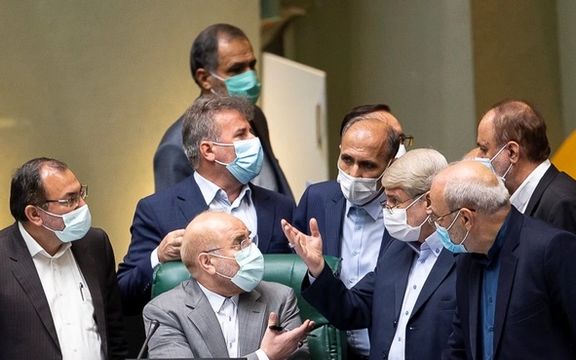
A top Iranian economist has slammed Iran’s so-called five-year developmental plan as meaningless amid overall instability, calling it a bureaucratic exercise.
Well-known economist and academic Mohsen Renani rejected an invitation by the Iranian Parliament's Research Center to work on a new 5-year plan. He said: "I have seen the outlook plan prepared by the Speaker of the Parliament. It is full of wishful thinking without considering the country's ongoing crisis and its potentials. That guarantees the plan's failure."
The economist pointed out that "The government is doing whatever it likes and at the same time writing its own development plan. In my opinion a development plan is meant to promote the economy from a stable lower level stable higher-level. So, a development plan will be meaningful only when a country has stable economic, social and political situation with a promising and reassuring outlook. When we do not have this situation, drawing a development plan would be meaningless."
Renani pointed out that what Iran needs currently is a way out of the ongoing crisis and a solution to bring about stability. "How can we think of a development plan when the rate of exchange for US dollar is likely to reach 500 thousand rials by late March? The situation of government revenues is not clear, the shadow of the war in Ukraine is getting closer to us every day, the talks on JCPOA are terminated, the government is losing its public credibility which is at its lowest level in four decades and capital flight from Iran is gaining momentum." he asked.
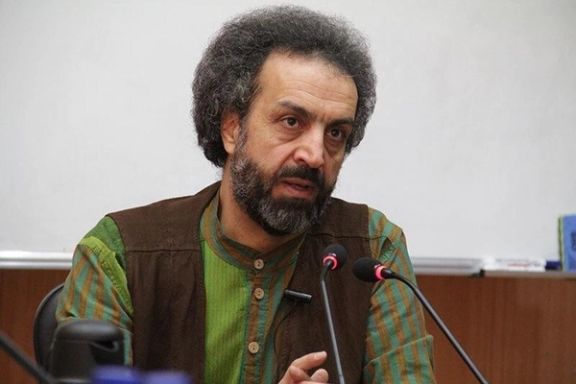
Meanwhile, Prominent Iranian cleric Ayatollah Abdollah Javadi Amoli has said in a critical comment about the Iranian government's behavior: "As long as officials are inefficient and astronomical embezzlements take place, we will most certainly fail."
He added: "We should stay away from wrongdoing, and we should advise others who listen to us not to do anything wrong."
In another controversial comment that mentioned killing of students in schools, people in the streets and the execution of young protesters , Javadi Amoli said "killing children will not help the government," moderate Aftab News reported.
He added: "The economy is a main pillar of the state. A poor nation is like a man without a spine. We need to have money in our pockets if we want to live a decent life."
Meanwhile, a report by the Parliament's Research Center published on Monday said that its researchers believe based on the proposed annual budget bill, that the inflation rate is likely to remain well above 40 percent.
On Wednesday, Ali Khomeini, a great grandchild of the founder of the Islamic Republic warned Iranian officials about the social and economic divides between them and the people as a result of religious pressure on citizens by the hardliners who regard themselves more Muslim than others.
In another development, Ahmad Alireza Beigi, a lawmaker from Tabriz said that a majority of Iranians have no representative in the parliament. In an interview with ILNA, he regretted that in many cases what the Parliament says and wants is miles apart from what the people demand.
He said, "the people are sulking with the government as we are facing a representation crisis in Iran." Meanwhile, referring to demands for changes in the government's economic team as a way of improving the economy, he added that the "Iranian economy is like a broken vehicle, changing the driver will not make any difference."
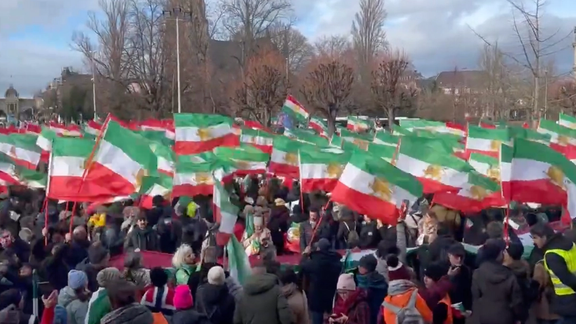
European officials and politicians who addressed a large Iranian rally in Strasbourg Monday vowed to help list the Revolutionary Guard as a terrorist organization.
“I’m here on behalf of the European Parliament and on behalf of 500 million European citizens to tell you that we are with you … That the women, men, students standing up in Iran have inspired the world,” the European Parliament’s speaker, Roberta Metsola, said in an address to the rally. “Your cry ‘Woman, Life, Freedom’ has been heard in every corner of the globe. You are on the right side of history, and you will make history,” she said.
“I have just addressed a rally and repeated the European Parliament’s call for a more forceful response to the terror unleashed by the regime of Iran. The people on the streets chanting Women Life Freedom will make history,” Metsola tweeted after her address to the rally.
“We will rescue our Iran from [the hands of] the mullahs,” Darya Safai, a Belgian-Iranian member of the Belgian Parliament told the participants in the rally. She vowed she would make every effort as an MP to tell her peers that it is putting the IRGC on the EU list of terrorist organizations is important not only for the Iranian people but also for “a safer world”.
Holding the IRGC responsible for “feeding and funding” many terrorist groups in the region, including Fatemiyoun and Zeynabiyoun who fight in Syria, the Hezbollah of Lebanon, the Islamic Jihad of Palestine and the Hashd al-Shaabi of Iraq. “We will do something for the IRGC to be known as the mother of international terrorism,” she said.
Liwa Fatemiyoun, or Fatemiyoun Brigade, and its Pakistani equivalent Zeynabiyoun are militia recruited by Iran’s Revolutionary Guards (IRGC) since 2014 from Shia Afghans and Pakistanis to fight in Syria alongside Bashar al-Assad’s forces.
While stressing that listing the IRGC as a terrorist organization is “only the first step” against the Iranian regime, Abir Al-Sahlani, representative of Sweden in the European Parliament, said the people of Iran have conquered the world with three words: Woman, Life, Freedom. The Iranian people deserve to enjoy basic human rights, freedom and democracy, she said.
Meanwhile, Charlie Weimers, a conservative member of the European Parliament who had been invited to join the Strasbourg rally as one of the speakers, in a tweet Sunday said his speech had been canceled by the organizers for “security reasons”. “Other speakers such as Abir Al-Sahlani, party colleague of the organizer, are not cancelled. I’m not going to lie. This is disappointing,” he wrote.
Some activists have criticized the cancelation of Weimers’ speech. “I have followed Weimers’ political activities for the past 20 years. He has always been the voice of the Iranians. Canceling his speech was a disappointment,” Arvin Khoshnood, a researcher of Iranian politics in Sweden, tweeted.
In his tweet, Khoshnood blamed Alireza Akhondi, a Swedish-Iranian member of the Swedish Parliament who organized Monday’s event in Strasbourg, for the cancellation. “Unity against the Islamic Republic is of outmost importance. Why exclude someone who can benefit the Iranian freedom cause?” he asked Akhondi.
Some social media users have alleged that Akhondi and other organizers canceled Weimers’ speech because he is well-known for supporting Iran's former crown prince, Reza Pahlavi, and they did not want Weimers to promote him in his speech.
“Charlie Weimers has been standing by the side of Iranians for a long time and on the right side of the history,” one of the critics tweeted. “His speech in Strasbourg was canceled because the enemies of Iran lost their mental security [for the fear of] him uttering the name Pahlavi,” he wrote.